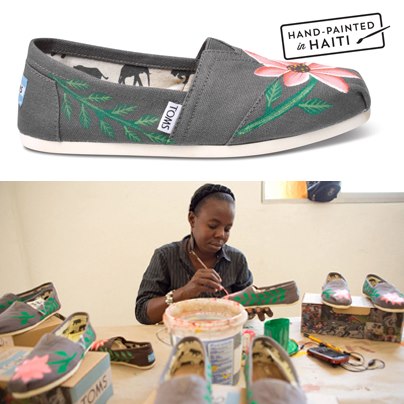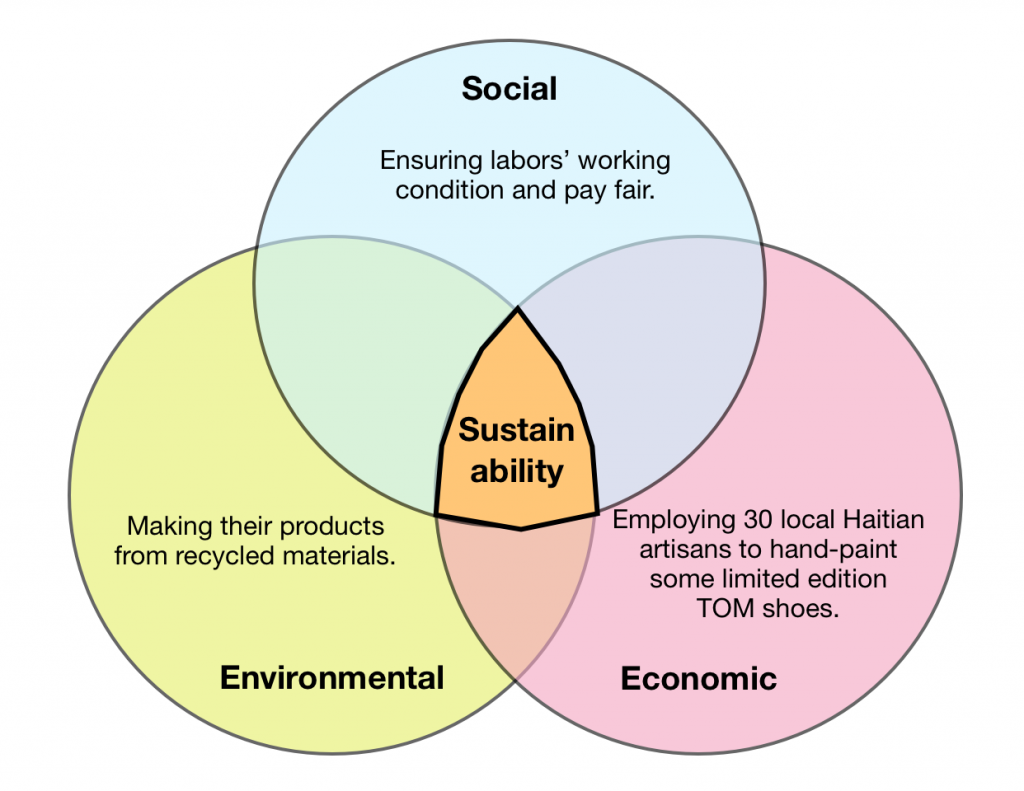TOMS Shoes is an example of a business that creates shared value. As it continues to do so, the company plans to open a new factory in Haiti in 2014.

http://plywoodpeople.com/wp-content/uploads/2010/08/Screen-shot-2010-08-19-at-8.43.06-AM.png
TOMS reconceive their products through their “TOMS Giving Shoes” commitment. It does this by producing good quality shoes made from recycled materials. For a pair of shoes a customer purchase means giving a pair of shoes to those in need. TOMS also redefine productivity in the value chain by “oversee[ing] that working conditions are acceptable and fair living wages are being paid.” (par.6) This act is opposed to what most companies usually strive for; to lower workers’ wages to save cost. But through this action, TOMS is creating productivity in the long run, where fair wages will act as an incentive for workers, hence they will be more efficient. By opening the new factory, TOMS also enable local cluster development, providing more than 100 new jobs. Additionally, it employs 30 local artisans to design and hand-paint limited edition shoes which allow to use local talents in conducting their business. Such program provides opportunities for current Haitians to develop.

http://popsop.com/wp-content/uploads/toms_haiti_artists_colelctive_02.jpg
Through the Triple Bottom Line, we can see that TOMS is on its path in becoming sustainable.
 All of these show how TOMS contributes to improvement in economic welfare and development to society while continuing to make profit, creating shared value.
All of these show how TOMS contributes to improvement in economic welfare and development to society while continuing to make profit, creating shared value.
Article source: http://www.caribjournal.com/2013/09/26/haiti-us-shoe-company-toms-to-open-new-factory-in-2014/
